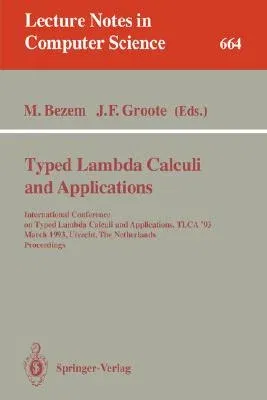Typed Lambda Calculi and Applications: International Conference on Typed Lambda Calculi and Applications, Tlca '93, March 16-18, 1993, Utrecht, the NePaperback - 1993, 3 March 1993

Qty
1
Turbo
Ships in 2 - 3 days
In Stock
Free Delivery
Cash on Delivery
15 Days
Free Returns
Secure Checkout
Part of Series
Lecture Notes in Computer Science
Part of Series
Research Notes in Neural Computing
Print Length
443 pages
Language
English
Publisher
Springer
Date Published
3 Mar 1993
ISBN-10
3540565175
ISBN-13
9783540565178
Description
Product Details
Book Edition:
1993
Book Format:
Paperback
Country of Origin:
DE
Date Published:
3 March 1993
Dimensions:
23.39 x
15.6 x
2.34 cm
ISBN-10:
3540565175
ISBN-13:
9783540565178
Language:
English
Location:
Berlin, Heidelberg
Pages:
443
Publisher:
Weight:
635.03 gm

